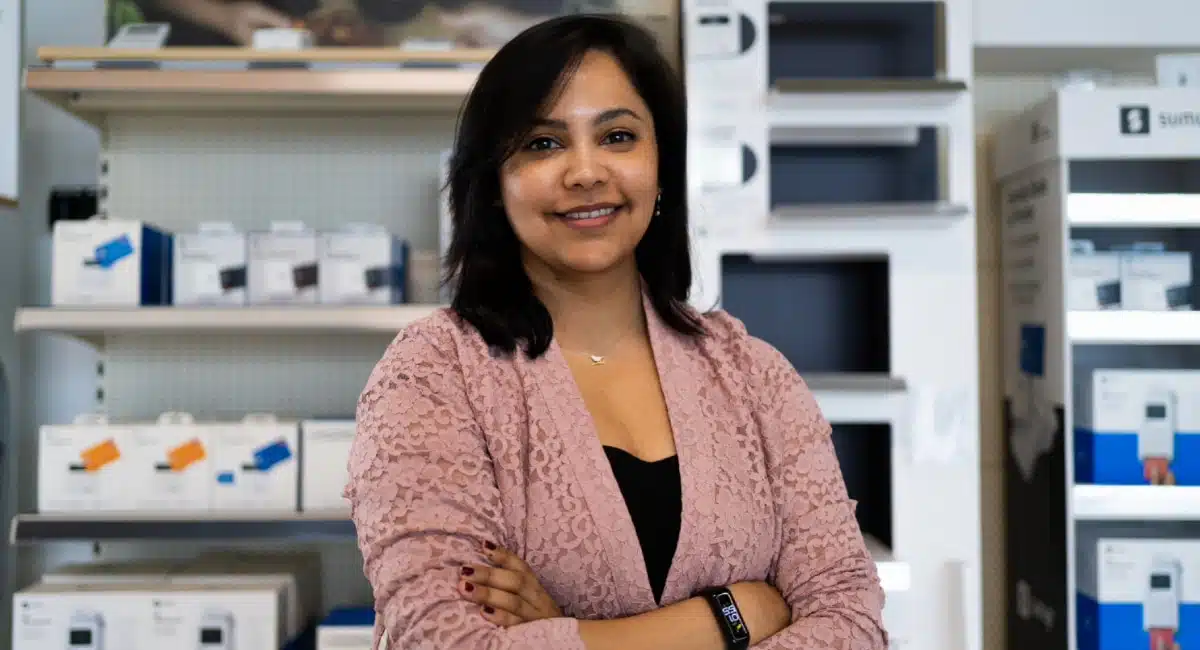A late-bloomer in credit card payments, Germany is now embracing mobile card readers.
It is one of the leading countries in the world in technological innovation, yet when it comes to payments, Germany has been among the most conservative in Europe, holding on to the cash economy.
True, the electronic cash debit card introduced in the German market in 1991, the EC card, became a hit. The more than 90 million cards in circulation generated more than 2.3 billion transactions in 2012, up from 126 million transactions in 1995. But credit cards have not been mainstream in Germany. Most restaurants would take cash or EC card only. Even American chains like Burger King and McDonald’s would reject Visa and Mastercard.
A German card reader for smartphones
It is all changing now. And because the credit card processing infrastructure was not as developed as in many other parts of Europe, many German businesses are taking a leap from cash only to the newest mobile card readers for smartphones or tablets. The card devices connects to a smartphone or tablet with cable or Bluetooth, and then uses the power of the Internet (though Wifi or 3G/4G) of the smartphone or tablet to process a payment.
A German founded company, Payleven, was actually the first to introduce a mobile Chip & PIN card solution internationally. Founded in Germany in March 2012, it proved that Germans can be innovators in this area too. With no fixed monthly cost and a low upfront cost of 79€ for the card reader, it offered an attractive alternative to the more expensive traditional card terminals.
SumUp, another Berlin start-up, launched its PIN+ card reader in 2014, at that time the most advanced of its kind in the German market. SumUp matches Payleven’s transaction fees: 0.95% for EC cards and 2.75% for all other cards. The card reader is available for 59€ Euro.
For a review of the latest SumUp card reader in German, see SumUp im Test: bestes Kartenterminal ohne Fixkosten?
Currently as the only mPOS system in Germany, SumUp offers the ability to upgrade to a full POS system with inventory control and all features expected of a modern POS system (what the Germans refer to as “Kassensystem”) – you may read our review of the SumUp POS system in German here. While the system is cloud based, is also works in offline mode. As a complete package of POS hardware, software and payment solution for affordable rates, it is expected to be welcomed by the small retail and gastro market.
SumUp was the first European mPOS provider to accept Bitcoin in its app.
iZettle taking on SumUp and Payleven
Founded already in 2010 and launched in Sweden in 2011, iZettle entered the German market in October 2012 in partnership with DZ Bank and Deutsche Telecom. “Strategically, Germany is one of our core markets,” says Jacob de Geer, CEO and co-founder of iZettle. “Our ambition is to become the undisputed market leader in Germany.”
In 2014 iZettle lowered their transaction fees for EC cards to 0.95%. Their Visa and Mastercard transaction fee rate matched that of Payleven at 2.75%. iZettle currently offers the most attractive card reader options. Launched in September 2015, iZettle Pro accepts contactless cards and Apple Pay along with chip and PIN and swipe. iZettle launched an upgraded contactless card reader in July 2016, with faster payment processing and longer battery life.
To read our full review of iZettle in German, see iZettle Kartenleser im Test.
Taxi drivers in Berlin required to accept cards
New legislation has helped the mobile card reader companies too. From 2015 taxis in Berlin, which were more often than not cash only, were required to accept credit cards.
It is not surprising that the country’s taxi drivers have become an important market for both SumUp, Payleven and iZettle. Very few had been equipped with credit card terminals.
“The trend is towards card payment, not least in the taxi. The democratisation of card payment is particularly important for this market,” says Konstantin Wolff, co-founder and CEO of Payleven.
Alternatives to iZettle, SumUp and Payleven?
iZettle, SumUp and Payleven are clearly the market leaders, but are there alternatives?
Streetpay, another German company offering chip and PIN smartphone payments, was launched in May 2012. Whether the company is still in operation is not so clear. Their Facebook page has several unanswered messages from customers from 2012 and 2013 asking for when the service will be working, and why nobody is picking up the phone in their German and UK office. Our emails to Streetpay have not been answered either.
Concardis, a well-known name in payment processing in Germany, recently launched its own app based card reader, Concardis OptiPay. It not yet clear whether app-based terminals will be a priority area for Concardis or a “just to have something” to meet the competition. Currently the app has fewer features than iZettle and SumUp, but Concardis might be upping its game if mPOS takes off for real.




